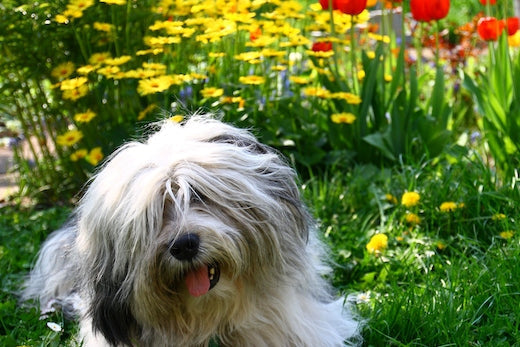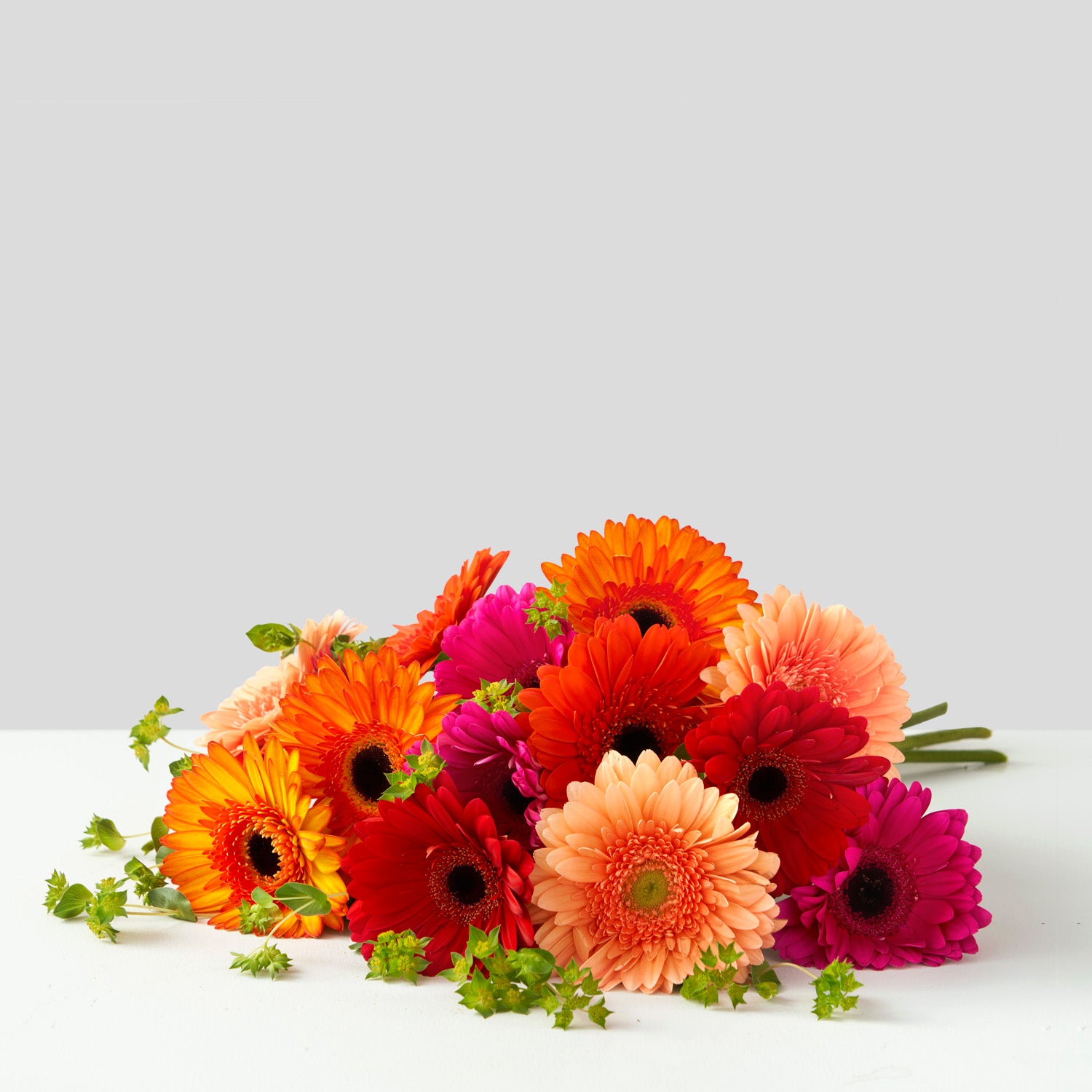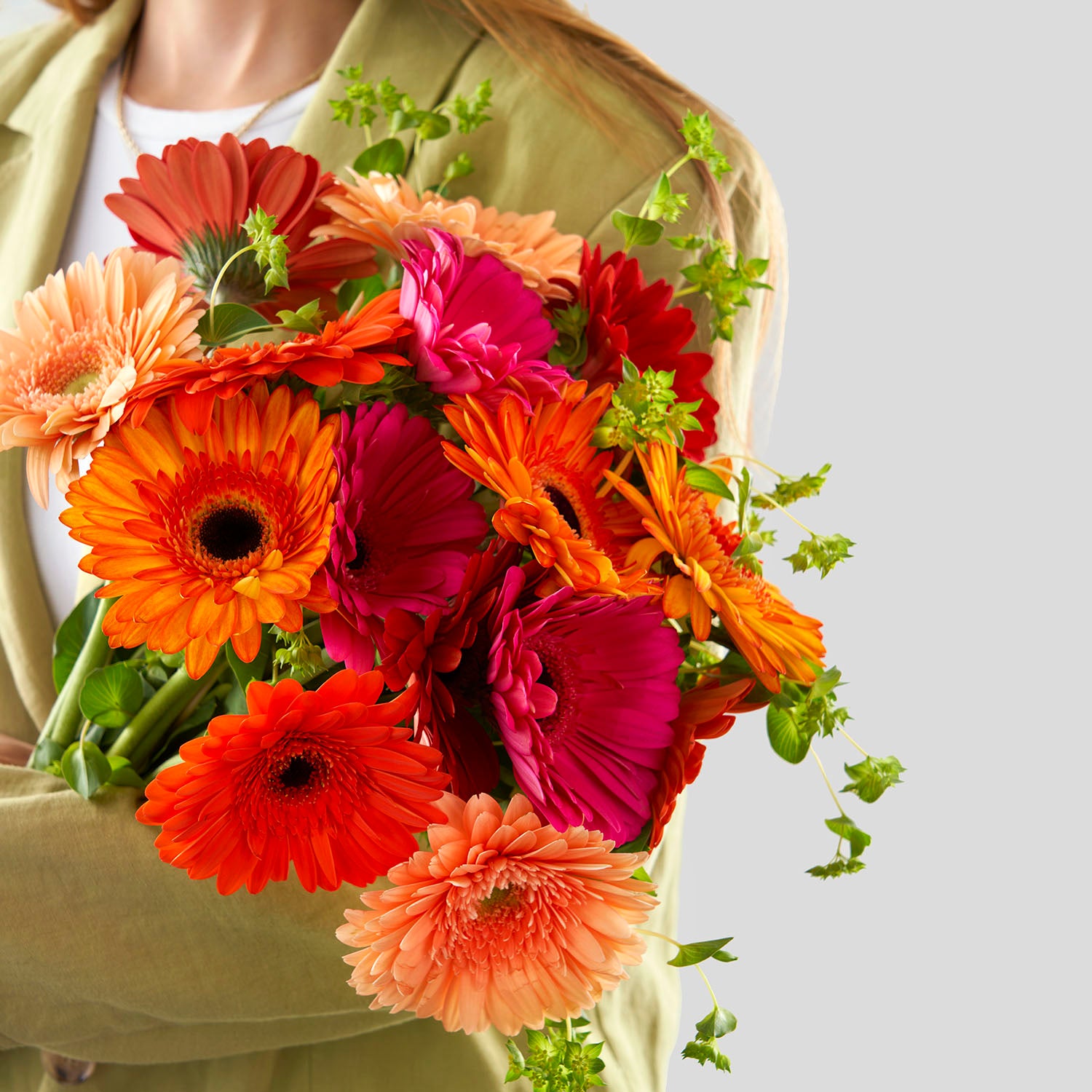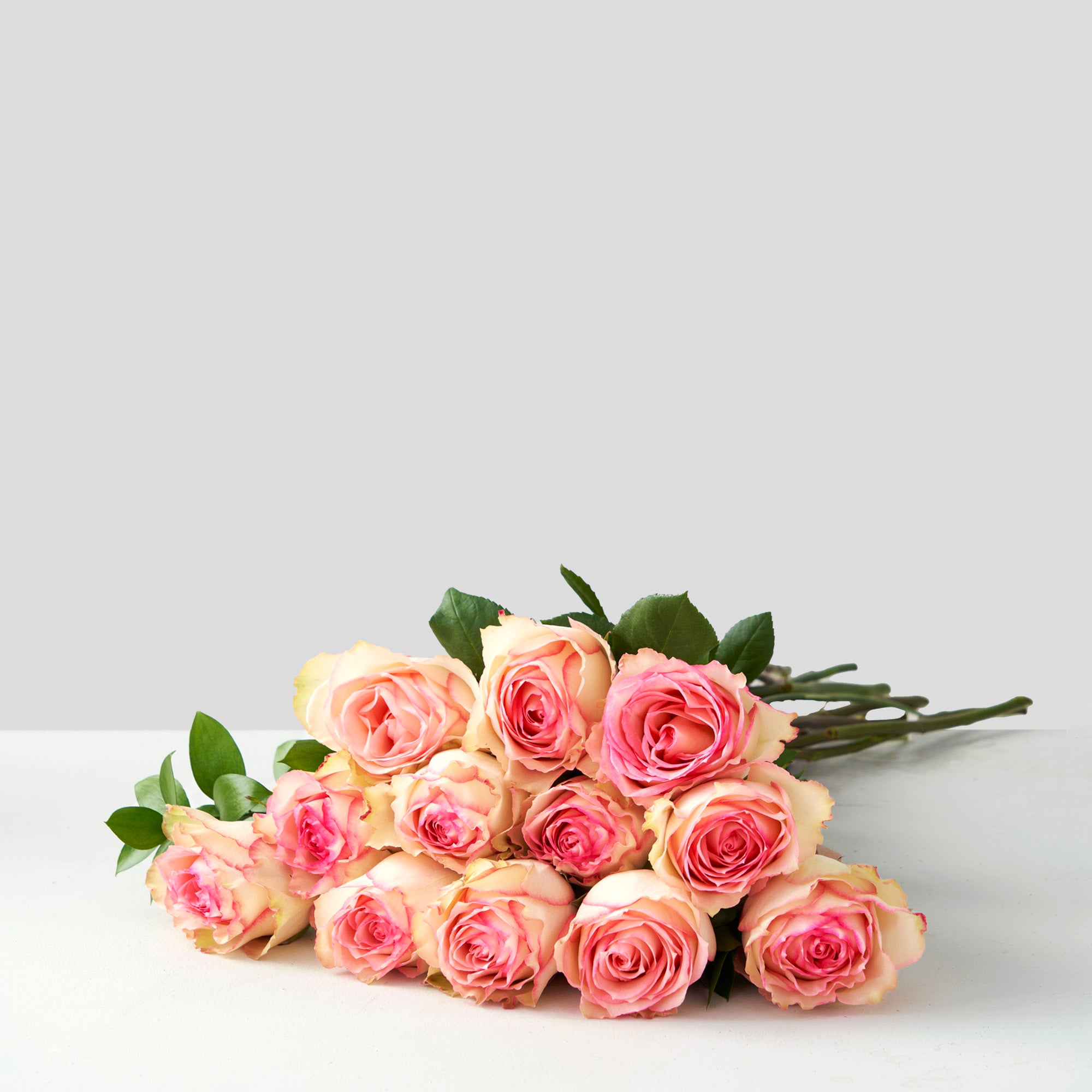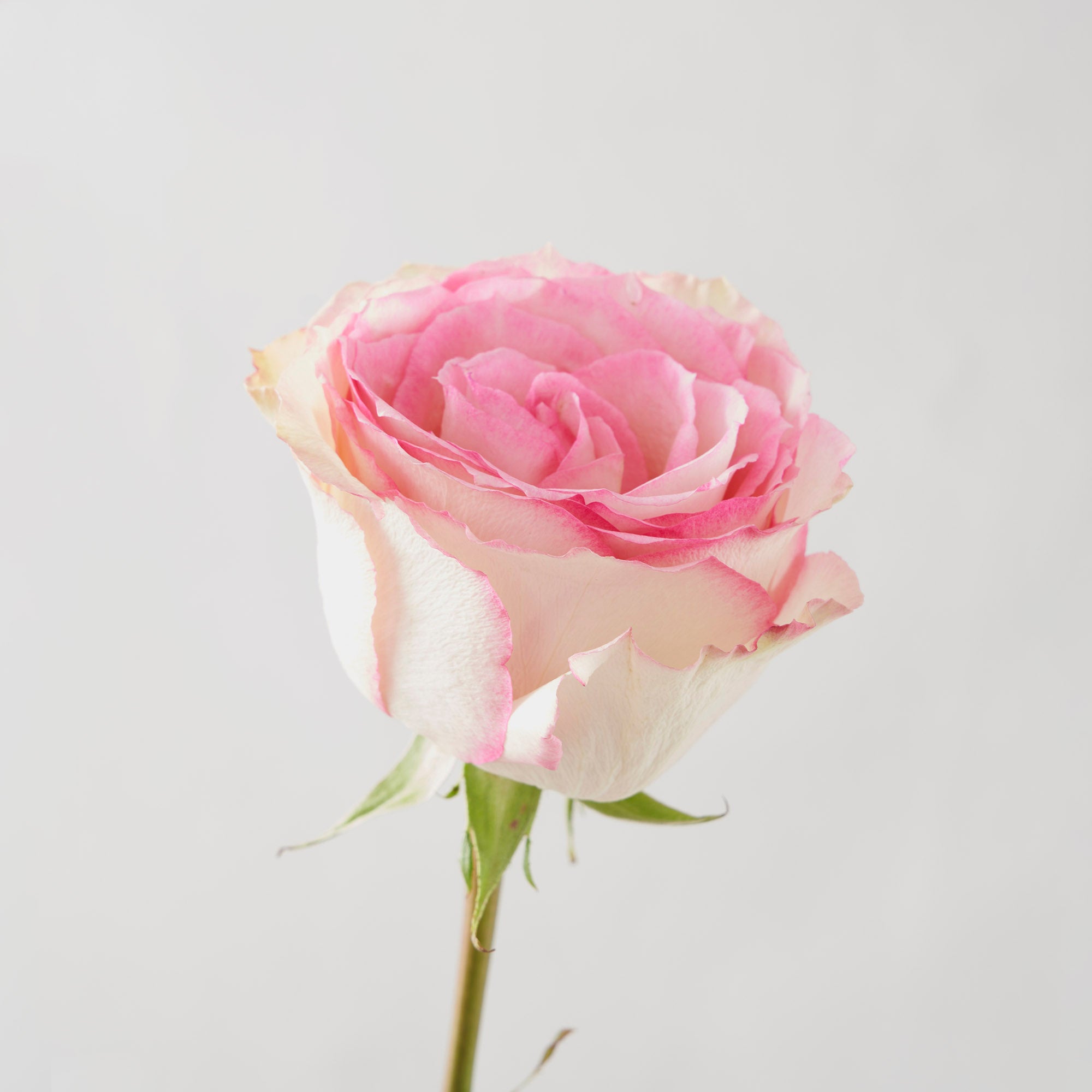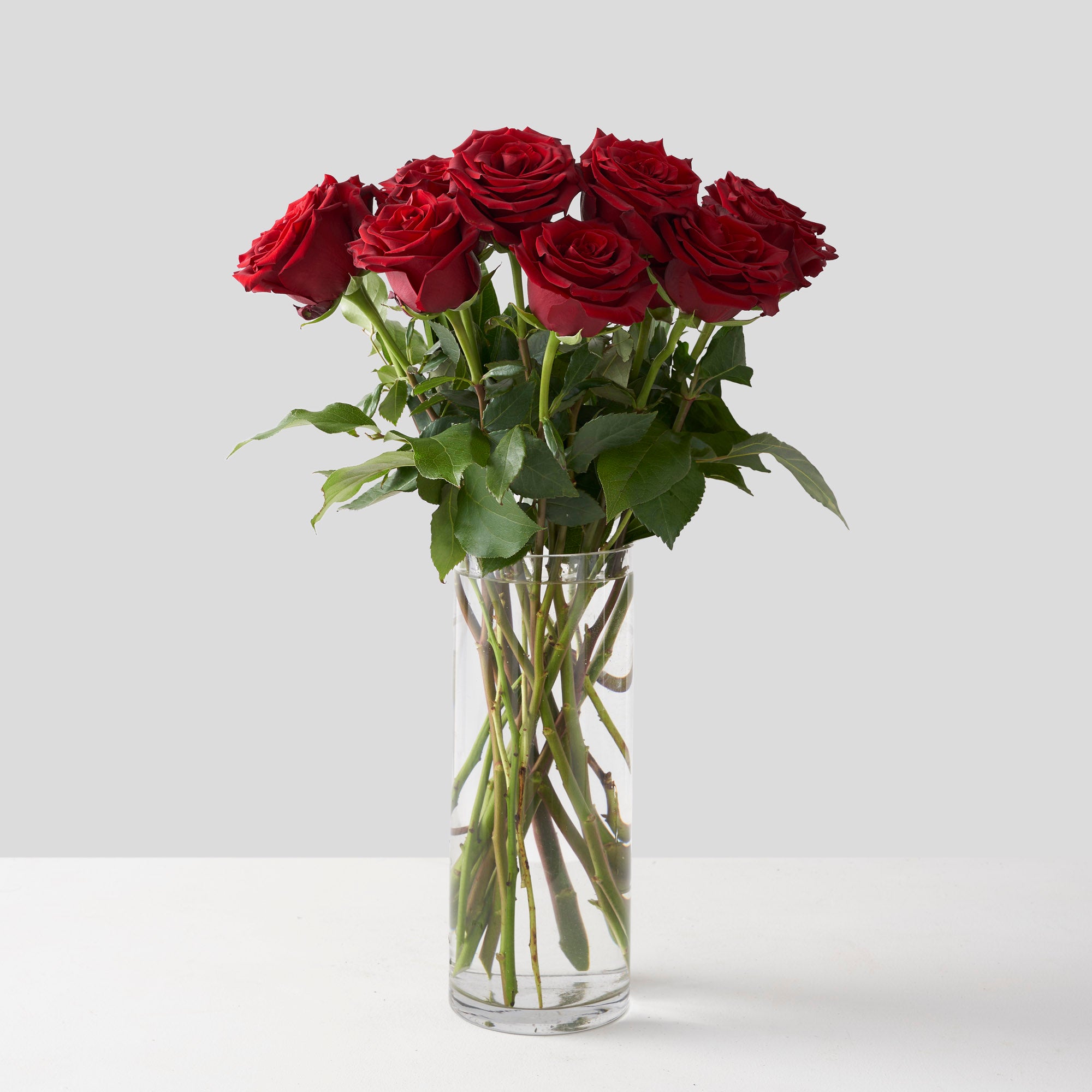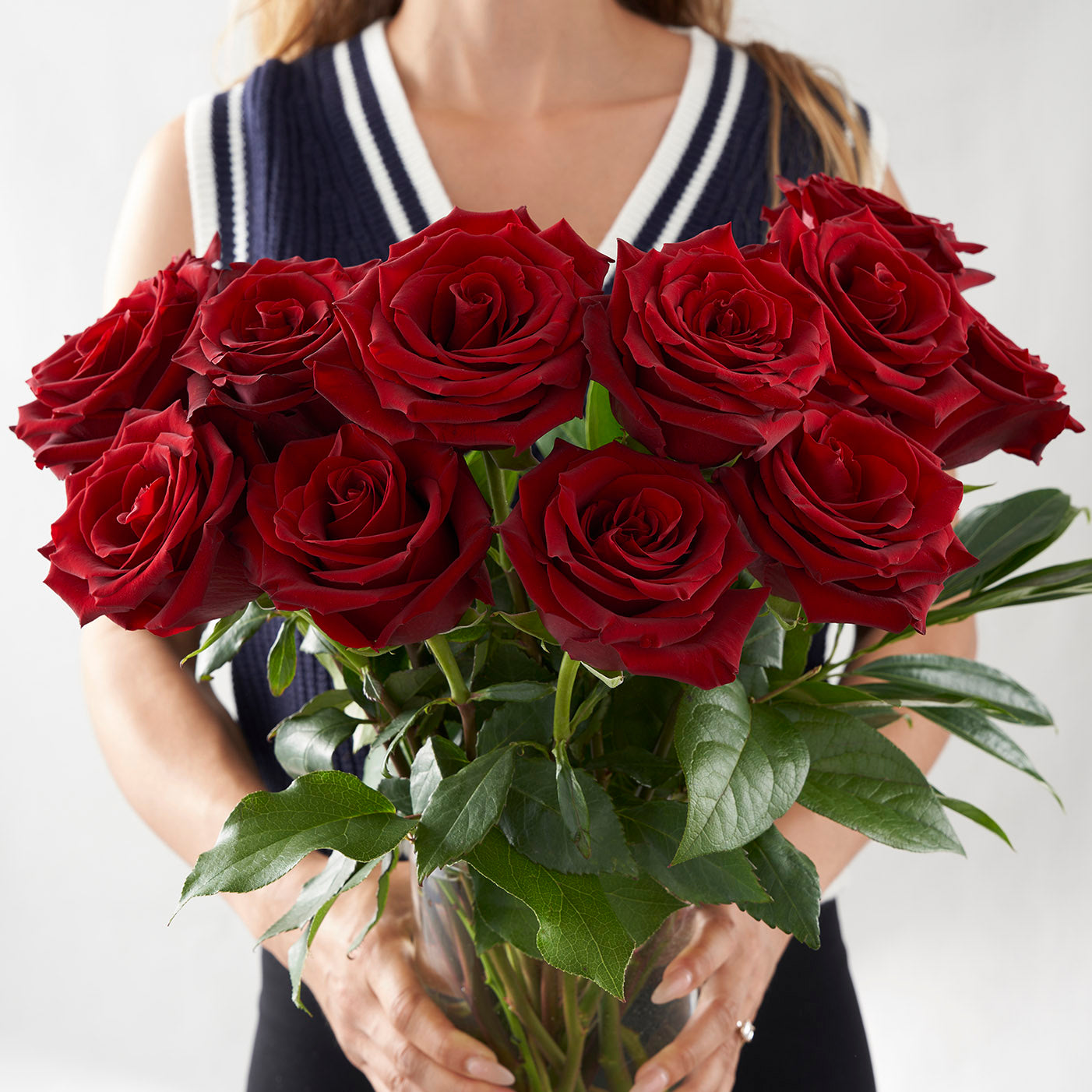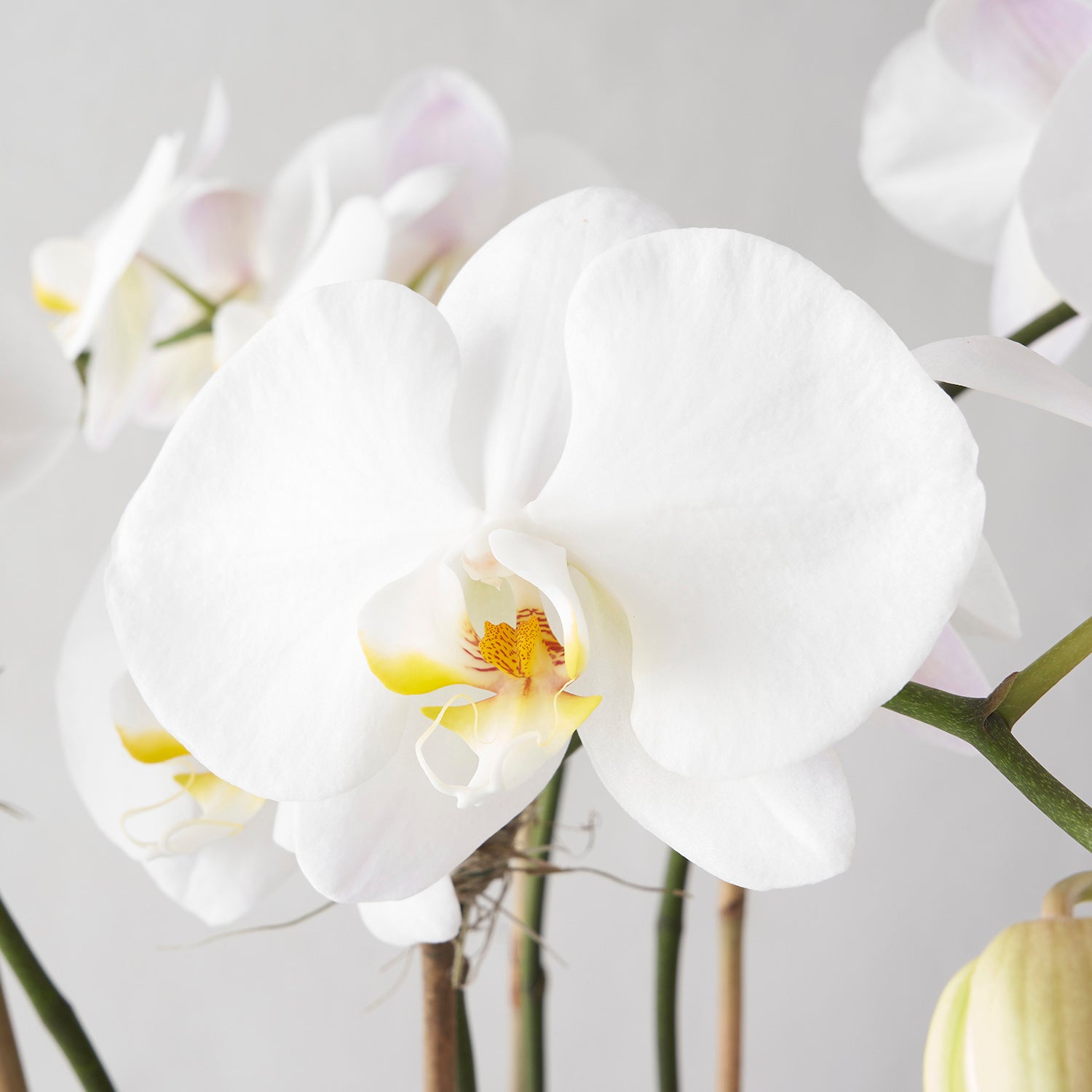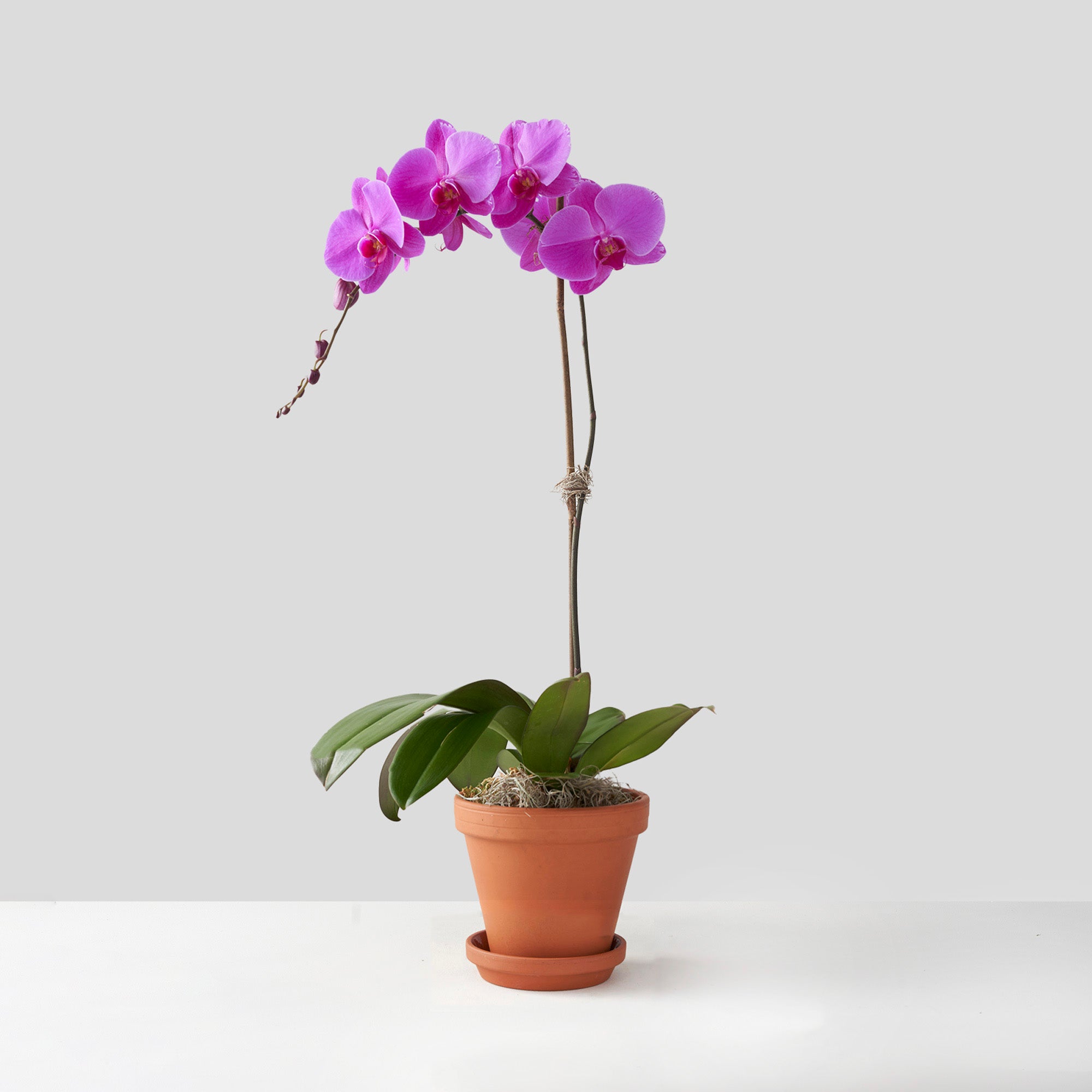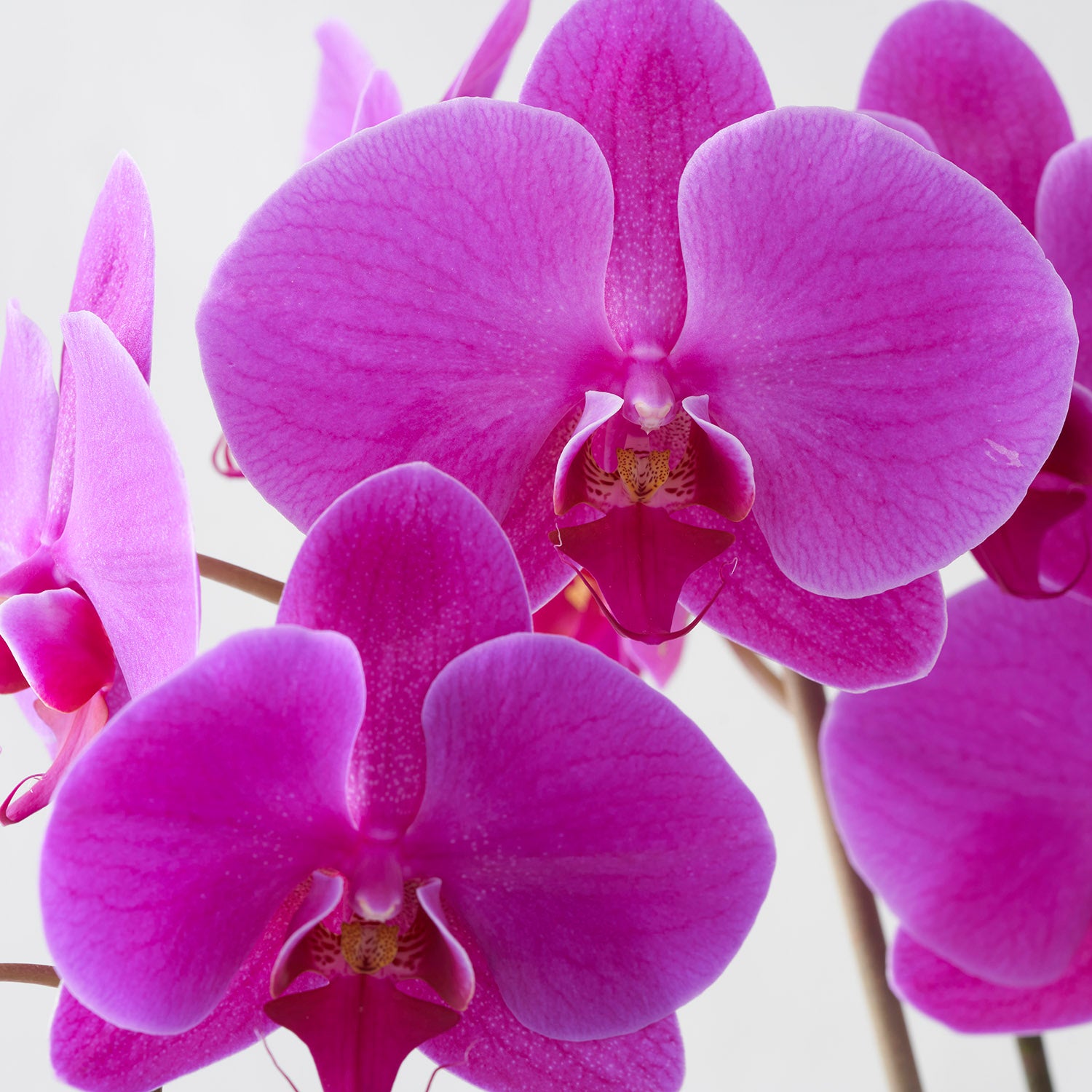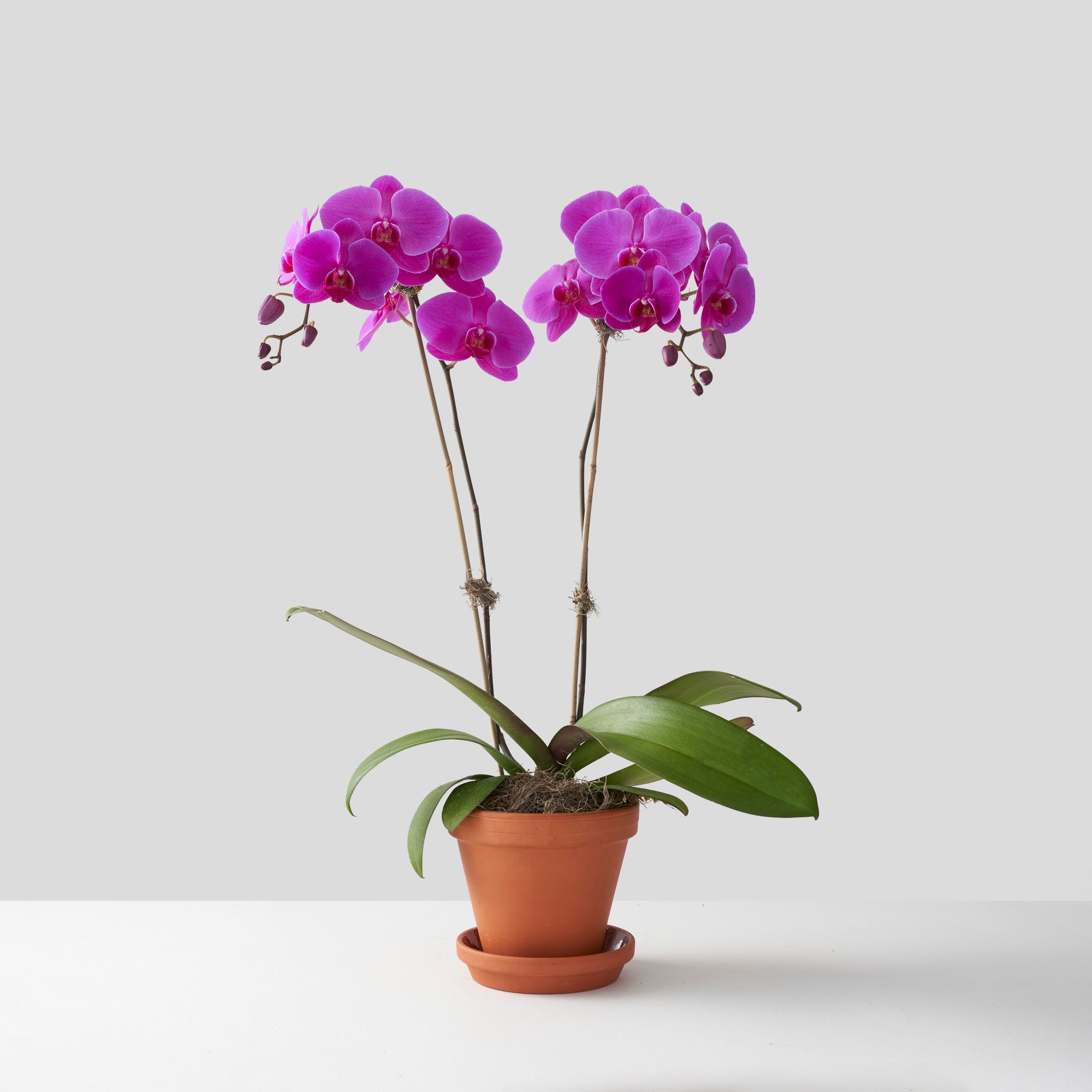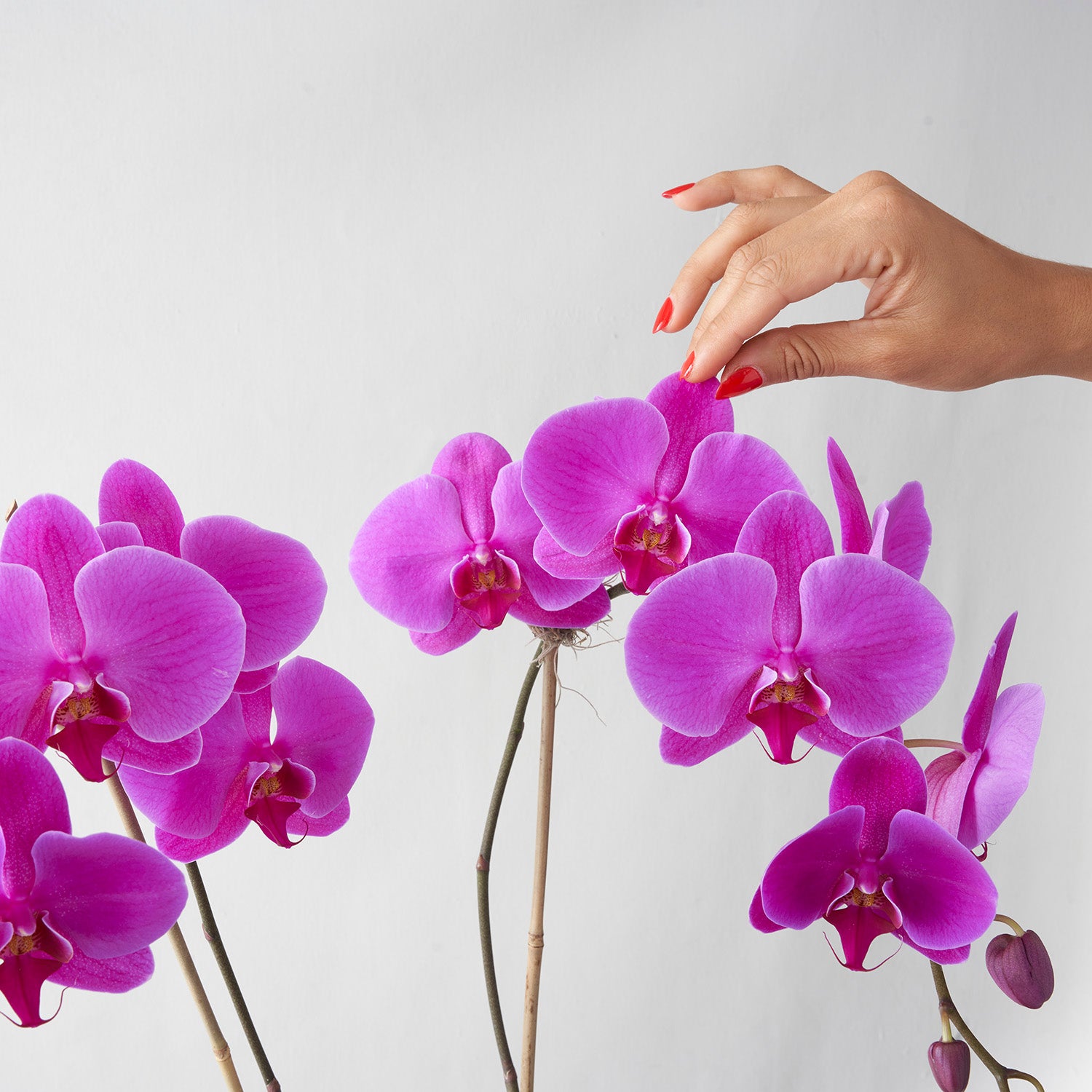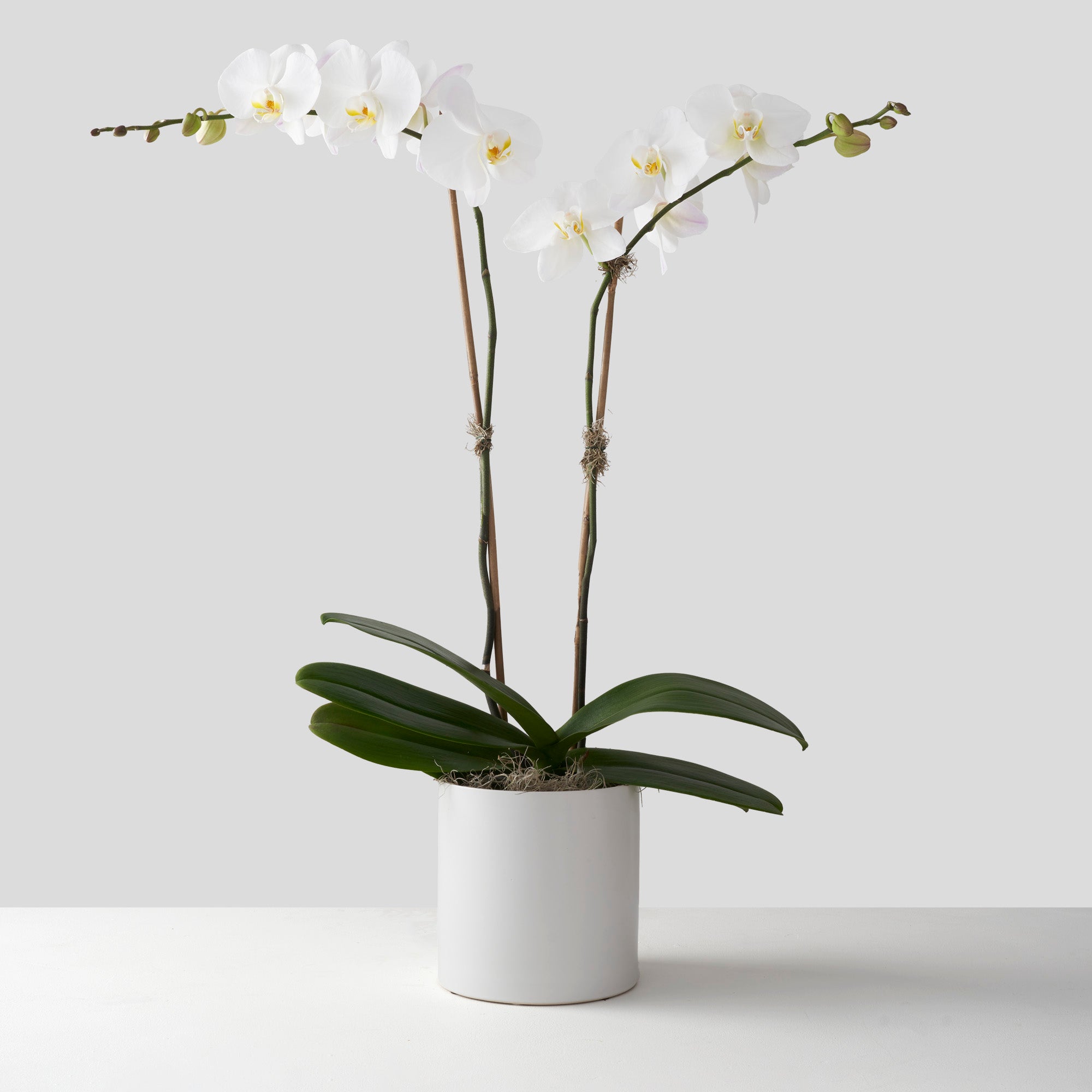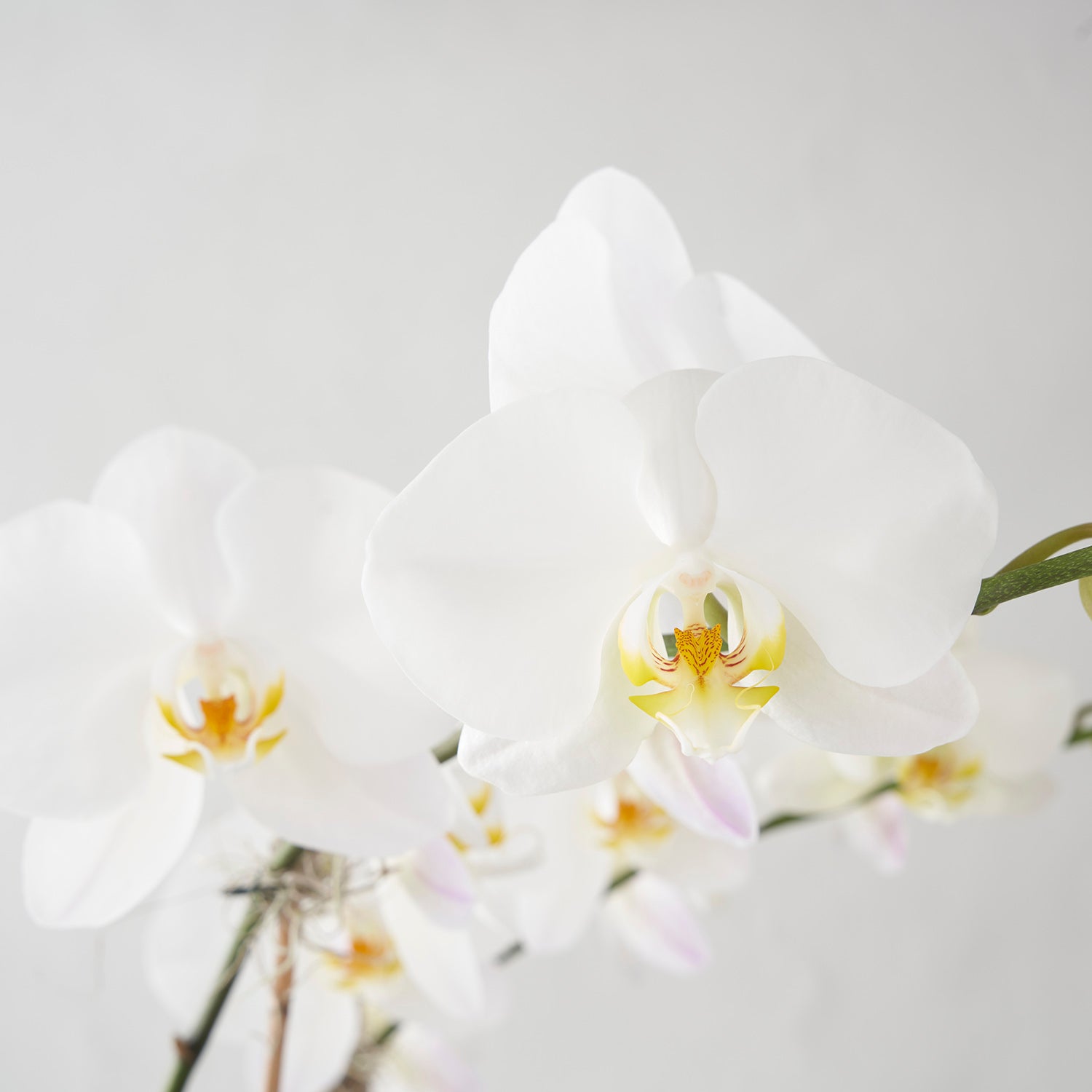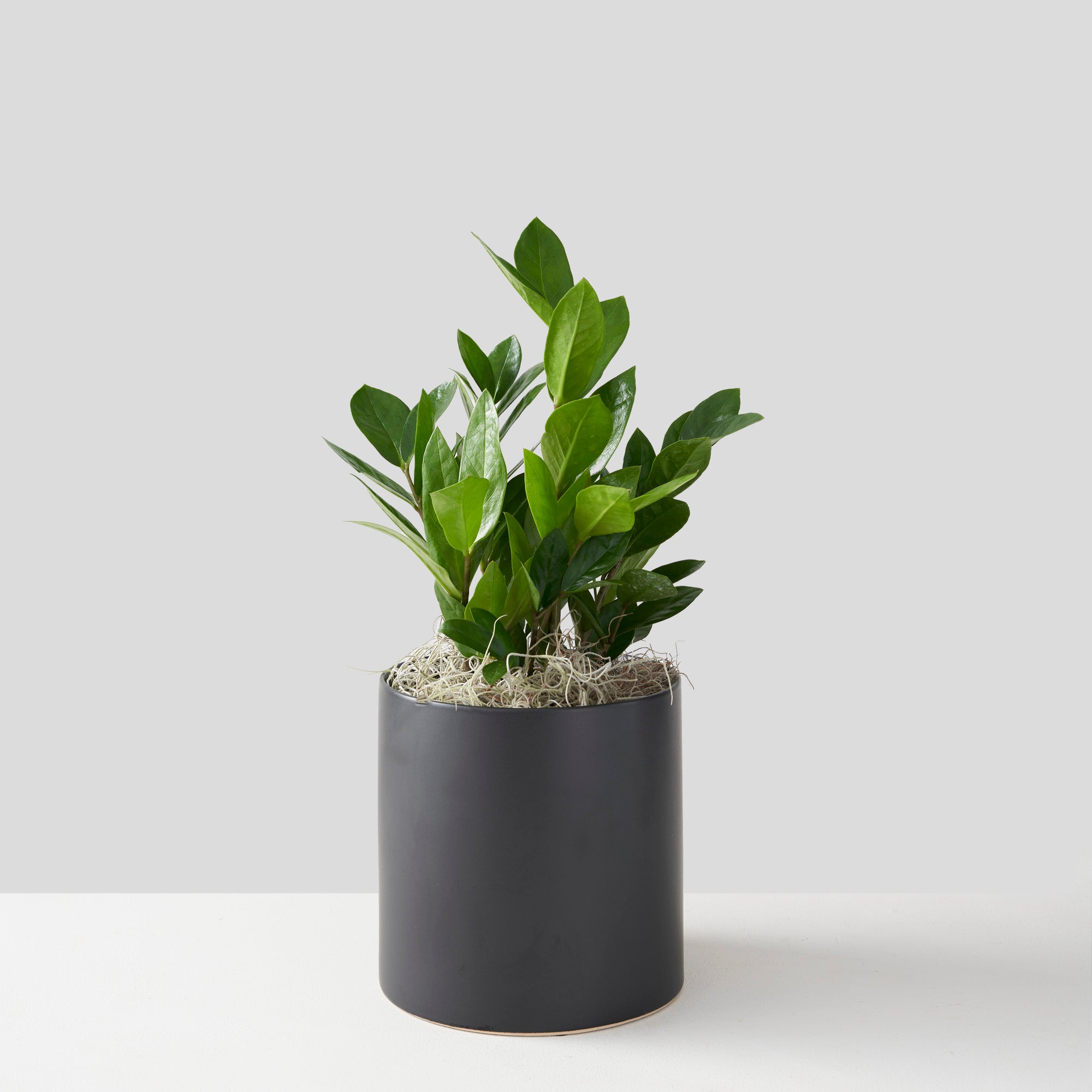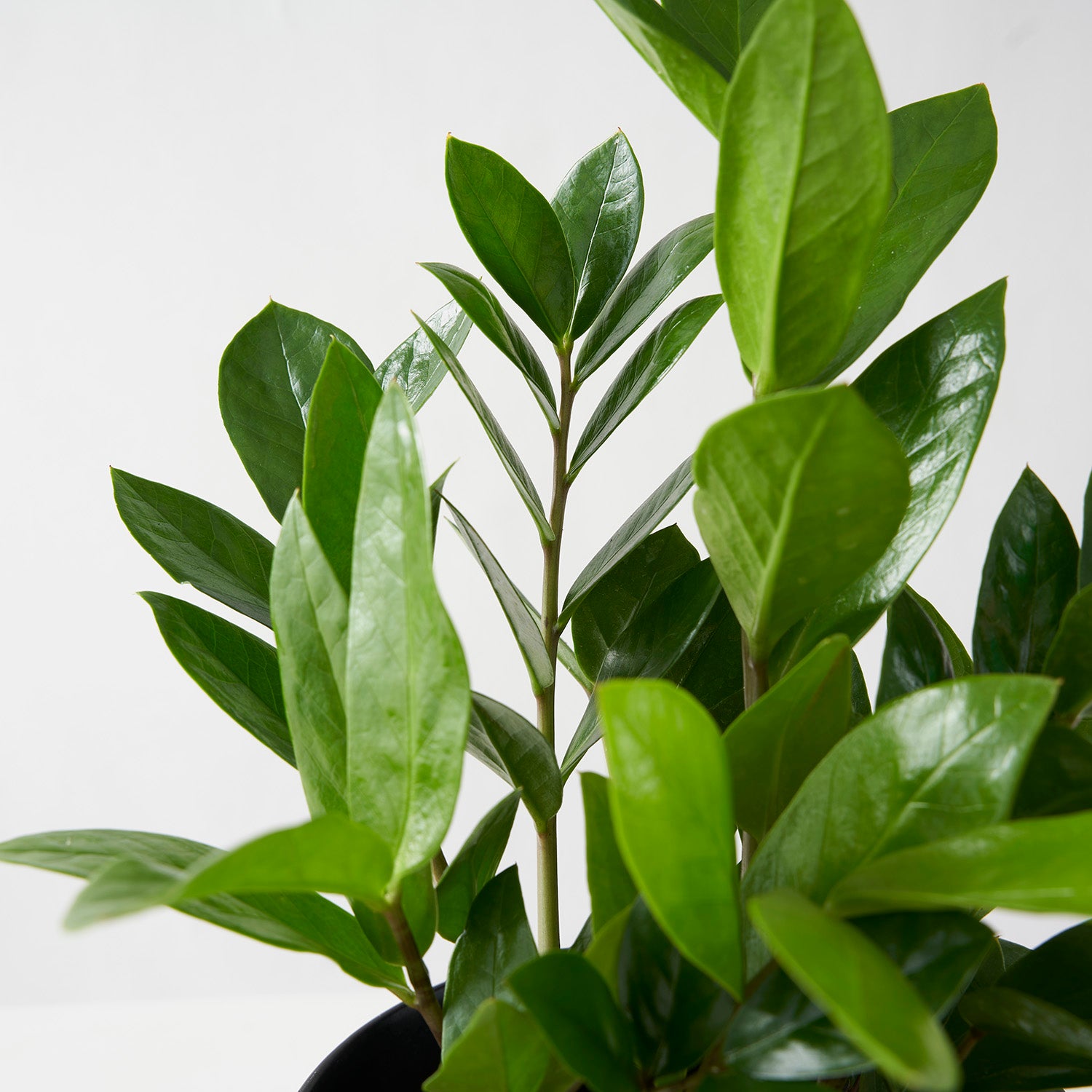Yes, pets and plants can live safely together!
That said, some flowers and plants may be toxic to your four-legged friends. See the symptoms of flower poisoning and get tips for keeping your pets safe around plants.
______
At Westmount Florist, we love fresh-cut flowers. But we’re also crazy about our pets and want to keep them safe. We know the same is true for many of our clients. As responsible pet owners, we need to know which plants and flowers can harm our beloved cats and dogs.
Consider this: Between 2020 and 2021,
- 66% of North American households had at least one potted house plant
- 52% of potted plant buyers owned a dog
- 40% of potted plant buyers owned a cat or bird
*Source: Consumer Houseplant Purchasing Report 2021
Flower Toxicity and Pets
Understanding the concept of flower toxicity is vital for pet owners. Some flowers contain substances that, when ingested by pets, can lead to a myriad of health issues ranging from mild digestive discomfort to life-threatening conditions.
The good news? You can still keep your home and garden filled with beautiful plants – and keep your furry friend safe.
Questions about your Westmount Florist flowers?
Common Toxic Flowers
Below are some of the most common flowers that are especially toxic to cats and dogs.
Lilies: Lilies, including Easter lilies and tiger lilies, are highly toxic to cats. Even ingesting small quantities can cause kidney failure.

Azaleas: Azaleas are a common garden & flowering indoor plant that contains toxins that can lead to vomiting, diarrhea, and more severe symptoms in pets.

Tulips: Tulips are a favourite spring flower. But like Hyacinths, and Irises, their bulbs are especially toxic to dogs and can lead to gastrointestinal distress.

Daffodils: These cheerful blooms can hide a perilous side for pets. Ingesting daffodil bulbs or flowers can result in symptoms like vomiting, drooling, and abdominal pain.

Poinsettias: Poinsettias are a popular holiday plant that can cause mild irritation in pets. Ingestion can cause symptoms like drooling and upset stomach.

Chrysanthemums: Chrysanthemums, often used in fall flower arrangements, contain pyrethrins, which can cause various symptoms in pets such as drooling, agitation, and vomiting.

Oleander: Oleander is a highly toxic plant for both cats and dogs. Ingestion can potentially lead to severe heart and digestive issues.

Less Common Toxic Flowers
There are other lesser-known flowers and indoor plants that can also be harmful to pets. Some of the lesser-known toxic flowers include:
Lily of the Valley (Convallaria majalis): Dangerous to both cats and dogs, causing heart rhythm disturbances and seizures.

Sago Palm (Cycas revoluta): Extremely toxic to pets; even small amounts can be fatal.

Autumn Crocus (Colchicum autumnale): Its toxicity can lead to severe vomiting, gastrointestinal bleeding, liver and kidney damage, and respiratory failure.

Hyacinth (Hyacinthus): The bulbs are the most toxic part, causing vomiting, diarrhoea, and depression of the central nervous system.

Dumb Cane (Dieffenbachia): Causes oral irritation, intense burning and irritation of the mouth, tongue, and lips, excessive drooling, vomiting, and difficulty swallowing.

Looking for pet-friendly flowers?
At Westmount Florist we carry many pet-friendly flowers, like roses, orchids, Alstroemeria and Snapdragons, that are often featured our arrangements like our Ella.
Toxic House Plants
Many houseplants are safe for your pet, but some can be toxic. Common toxic houseplants include ZZ plants (Zamioculcas zamiifolia) and Snake plants (Sansevieria). These contain saponins, which can cause mild irritation if ingested by pets.
Looking for pet-friendly houseplants?
At Westmount Florist, we often have African Violets, Boston Ferns and Succulents, which are generally considered non-toxic to pets. Contact us.
Recognizing the Symptoms of Flower Poisoning in Pets
Being able to recognize the symptoms of flower poisoning is vital for early intervention. Common symptoms include:
- Vomiting and diarrhea
- Loss of appetite
- Lethargy and weakness
- Difficulty breathing or rapid breathing
- Seizures
- Uncoordinated movements or muscle tremors
- Excessive drooling or foaming at the mouth
- Changes in behaviour or consciousness
- Jaundice (yellowing of the skin or eyes)
- Unusual bleeding or bruising
What To Do If You Think Your Pet Has Been Poisoned
One episode of vomiting may not mean your pet is suffering from severe toxicities. However, repeated vomiting, lethargy, and/or refusing to eat may indicate a serious problem requiring immediate veterinary attention.
- Do not induce vomiting yourself, unless your vet says to.
- Try to identify the plant as this will help the vet identify potential illness from the toxins if present.
- Bring a sample of the plant to the vet, if able.
Tips for Keeping Pets Safe Around Plants
Here are some practical tips for preventing flower poisoning in pets:
- Create a pet-friendly home and garden with non-toxic flowers and plants. That way, your pets can safely explore and play, indoors and out. For recommendations on pet-friendly flowers and plants, contact us.
- Keep toxic flowers out of reach of pets. Using decorative plant shelves or hangers can be an effective solution. Another option is to keep toxic plants in locked rooms or behind secure barriers.
- Educate family members and guests about the dangers of toxic flowers. Make sure they understand the importance of keeping pets away from harmful blooms.
- Ask your veterinarian about pet-safe practices at home.
Training Pets to Respect Plants and Flowers
Most cats and dogs will stay away from dangerous plants, but some pets, especially young puppies, may be more curious. Just as you've successfully trained your pet to use the litter box or go outside, you can also teach them to leave your plants and flowers alone.
- When your pet shows interest in your greenery, firmly but gently let them know this behaviour is not acceptable. A useful method is to have a spray bottle handy; a quick, gentle mist can discourage them from approaching the plants. This method is harmless but effective.
- Always reward your pet for avoiding the plants with treats, affection, and praise.
- Patience is key in training, but it's a long-term solution for keeping both your plants and pets safe and happy.
Making Plants Less Attractive to Pets
There are also a few things you can do to deter pets from tampering with your plants. Always use safe, non-toxic deterrents.
- Consider spraying plants with a solution like bitter apple; its unappealing taste and smell can discourage pets.
- If your dog digs in the soil or your cat treats it like a litter box, try covering the soil. Decorative rocks are an attractive and functional option; they prevent pets from accessing the soil while still allowing water to seep through for proper plant hydration.
- Or place prickly pine cones around the plants, as most pets will avoid walking on them.
Choosing Pet-Friendly Floral Arrangements with Westmount Florist
With a little knowledge and a few preventive measures, you can enjoy the beauty of flowers in your home and garden year-round without putting your pets in harm's way. This also includes floral arrangements.
Westmount Florist offers beautiful non-toxic floral arrangements like our Maeve, Sydney, or Gerberas. They’ll brighten your space and ensure the safety of your beloved pets.
Find the perfect pet-friendly plants and flowers for your décor
Our florists can help you create a custom, non-toxic floral design tailored to your specific floral preferences. Contact us.
Want to deepen your knowledge of all things floral? Check out our Flower Reference Guide!
Disclaimer:
This guide is not a substitute for expert veterinary guidance. For more information on plant toxicity, please refer to the ASPCA.
The information provided in this blog post is for educational and informational purposes only and is not intended as a substitute for advice from your veterinarian or other healthcare professional. Always seek the advice of your veterinarian with any questions you may have regarding a medical condition or treatment for your pets. The list of toxic flowers mentioned in this blog is not exhaustive, and pet owners are encouraged to consult with a veterinary professional for the most accurate and up-to-date information.




